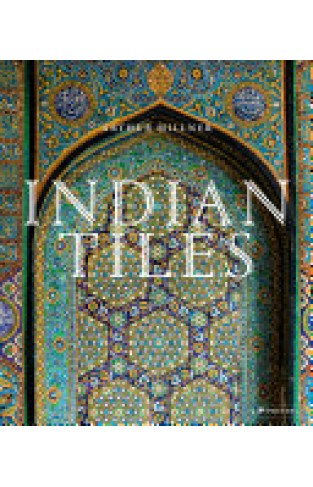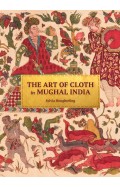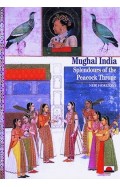- Home
- Books
- Categories
- Non Fiction
- History
- Ancient & Civilization
- Indian Tiles: Architectural Ceramics from Sultanate and Mughal India and Pakistan
Indian Tiles: Architectural Ceramics from Sultanate and Mughal India and Pakistan
By: Arthur Millner
-
Rs 25,195.50
- Rs 27,995.00
- 10%
You save Rs 2,799.50.
Due to constant currency fluctuation, prices are subject to change with or without notice.
Indian Tiles: Architectural Ceramics from Sultanate and Mughal India and Pakistan
By: Arthur Millner
Rs 25,195.50 Rs 27,995.00 Ex Tax :Rs 25,195.50
Zubin Mehta: A Musical Journey (An Authorized Biography)
By: VOID - Bakhtiar K. Dadabhoy
Rs 892.50 Rs 1,050.00 Ex Tax :Rs 892.50
The Art of Cloth in Mughal India
By: Sylvia Houghteling
Rs 19,345.50 Rs 21,495.00 Ex Tax :Rs 19,345.50
Treasures of the Mughals and the Maharajas: The Al Thani Collection
By: Amina Taha-Hussein Okada
Rs 17,095.50 Rs 18,995.00 Ex Tax :Rs 17,095.50
A World of Head Ornaments: Africa, Asia, Oceania, America
By: Anne Van Cutsem
Rs 6,795.75 Rs 7,995.00 Ex Tax :Rs 6,795.75
Mughal India: Splendours of the Peacock Throne
By: Valerie Berinstain
Rs 2,715.75 Rs 3,195.00 Ex Tax :Rs 2,715.75
Viva Dictionary Of Punctuation And Hyphenation
By: William Gould
Rs 127.50 Rs 150.00 Ex Tax :Rs 127.50
And Another Thing... (The Hitchhiker's Guide to the Galaxy)
By: Eoin Colfer
Rs 355.50 Rs 395.00 Ex Tax :Rs 355.50
Collins Pocket Italian Dictionary
By: Collins Dictionaries
Rs 1,847.50 Rs 3,695.00 Ex Tax :Rs 1,847.50
The Art of Cloth in Mughal India
By: Sylvia Houghteling
Rs 19,345.50 Rs 21,495.00 Ex Tax :Rs 19,345.50
Treasures of the Mughals and the Maharajas: The Al Thani Collection
By: Amina Taha-Hussein Okada
Rs 17,095.50 Rs 18,995.00 Ex Tax :Rs 17,095.50
A World of Head Ornaments: Africa, Asia, Oceania, America
By: Anne Van Cutsem
Rs 6,795.75 Rs 7,995.00 Ex Tax :Rs 6,795.75
Mughal India: Splendours of the Peacock Throne
By: Valerie Berinstain
Rs 2,715.75 Rs 3,195.00 Ex Tax :Rs 2,715.75
No recently viewed books available at the moment.
Zubin Mehta: A Musical Journey (An Authorized Biography)
By: VOID - Bakhtiar K. Dadabhoy
Rs 892.50 Rs 1,050.00 Ex Tax :Rs 892.50
Indian Tiles: Architectural Ceramics from Sultanate and Mughal India and Pakistan
By: Arthur Millner
Rs 25,195.50 Rs 27,995.00 Ex Tax :Rs 25,195.50
The Art of Cloth in Mughal India
By: Sylvia Houghteling
Rs 19,345.50 Rs 21,495.00 Ex Tax :Rs 19,345.50
Treasures of the Mughals and the Maharajas: The Al Thani Collection
By: Amina Taha-Hussein Okada
Rs 17,095.50 Rs 18,995.00 Ex Tax :Rs 17,095.50
A World of Head Ornaments: Africa, Asia, Oceania, America
By: Anne Van Cutsem
Rs 6,795.75 Rs 7,995.00 Ex Tax :Rs 6,795.75
Mughal India: Splendours of the Peacock Throne
By: Valerie Berinstain
Rs 2,715.75 Rs 3,195.00 Ex Tax :Rs 2,715.75














-120x187.jpg?q6)

















